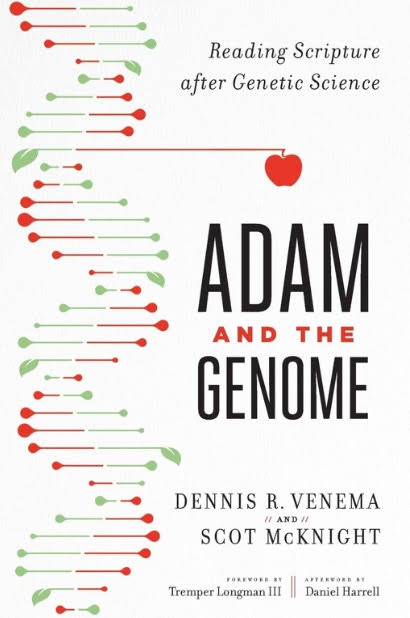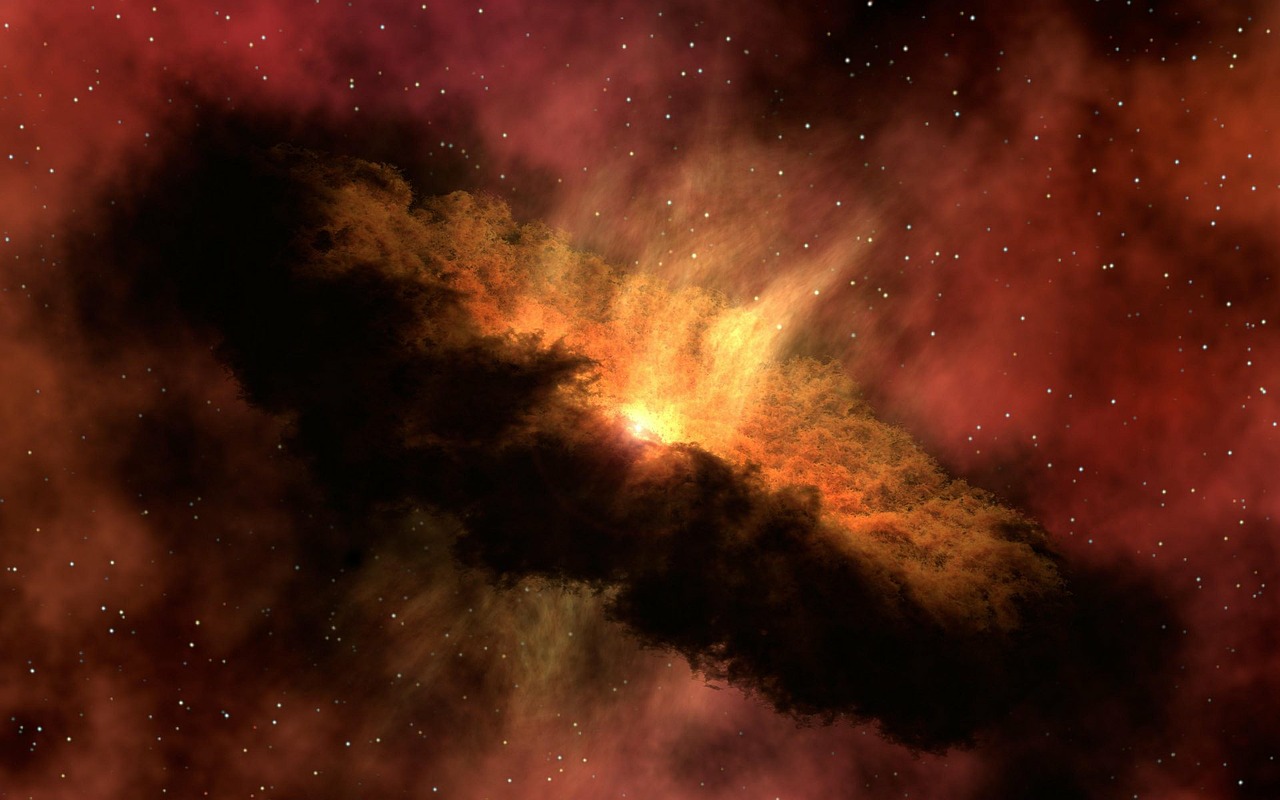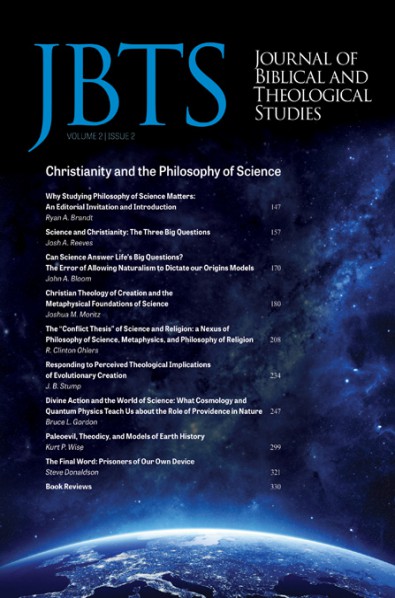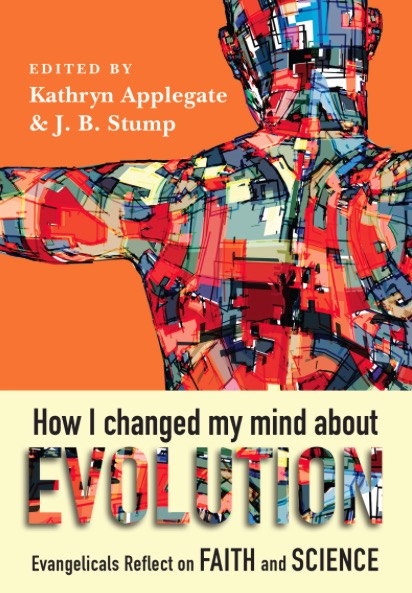


On why we should agree with contemporary atheists — or why a generic god does not exist
Robert Brennan, May 2013
Download PDF
On why we should agree with contemporary atheists — or why a generic god does not exist
Robert Brennan
Rev Dr Brennan is an ordained Uniting Church minister with a background in industrial physics and theology.
His doctoral thesis is entitled ‘Augustine, perfection and inspiration: a stumbling block to the dialogue between theology and science’.
Abstract
This paper discusses why Christians ought not believe in the god that atheists do not believe in – but often do. It is argued that there is a problem in assuming the existence of a generic all powerful good ‘god’. Three typical well-argued cases are examined which arrive at differing conclusions about the nature of ‘god’. Barth argued that any such generic case was weak. He favours the specific God of Jesus Christ. In siding with Barth, it is concluded that a form of agreement with contemporary atheism should stand in affirming that a generic class of god does not exist.
Key Words
Perfect-being theology, Barth, contemporary atheism
Introduction
A number of contemporary atheists argue that an all-perfect, all-powerful, all-good divine being does not exist. Some of their cases such as Andre Comte-Sponville’s are quite well argued (Comte-Sponville, 2008). Quite provocatively as a theologian, I also want to suggest that such a divine being of the generic type of all-perfect, all-powerful, all-good, all-knowing, et cetera does not exist. That is, that the God of Jesus Christ is neither a ‘god’ of the class of divine being that is all-perfect, all-powerful, all-good and all-knowing, nor one kind of appearance of a divine being of that class, albeit, a class that many assume to contain one or — for atheists —zero members. Further, making such generic attributes a starting point for discussing deity hinders rather than helps in coming to understand the particular God who is revealed in Jesus and in history.
Comte-Sponville
Comte-Sponville is a clear, persuasive and engaging philosopher, with a large following in the non-English speaking world. He is a humble, non- dogmatic atheist whose growing popularity and influence Christians should not overlook in years to come. Christians will, of course, thoroughly disagree with his conclusions. The question is how to refute his line of reasoning?
Comte-Sponville demonstrates his French Catholic roots as he humbly questions traditional proofs for God’s existence and the need for religion. Most theologians would agree with his assessment of the merits and weaknesses of the proofs and the religion he dismisses. He is far less scathing about religion than Bonhoeffer and Barth, let alone Dawkins or Hitchens. His argument is marred by his self-admitted inability to examine deeply, either theologically or historically, the sources of the common ideas he assumes about God as perfect-being, a perfectly created world and the soul. Not unlike Dawkins and Hitchens, he does repeat the specious argument that religion is a cause of atrocities. It is specious, because it neglects the historical fact of the twentieth century that the worst atrocities were committed by atheistic regimes. That does not of course excuse the church, but does indicate that belief or its lack is by itself not decisive in determining societal behaviour.
He, like Darwin and many others, reaches an impasse — unable to argue for God’s existence by reason or from his absent personal religious sentiments. My research argues that the problem at bottom of these assumptions is the attempt to talk about God without referring to God except in ‘general’ terms. Any reference to Jesus Christ and his pointing to the existence of God are sources of information Comte-Sponville presumes to dismiss at the start. I can’t help feeling this makes him like the person looking for their car keys under the street lamp because the light is better there than looking beside the car where they were dropped.
Can there be ‘atheist spirituality’? Convincingly in his last chapter, he argues for experiences of majesty in creation pointing towards a life in the spirit as breaking free of our ‘precious little selves’ – a good conclusion. It is convincing only if his early arguments against the existence of God and religion are to be accepted.
His logic is largely sound, except that he assumes that understanding God can begin with postulating generic divine attributes. His approach is not new, radically so, in that he still presumes the problematic consensus that developed in early modernity: that is, that ‘god’ can be defined beginning with generic attributes consistent with those of late medieval Perfect-being Theology, Leibniz’s Principle of Sufficient Reason and the Two Books metaphor.
Unexpectedly, his arguments against the existence of God highlight similar problems with a postulated generic perfect-being God as those indicated in the disparate theological works of Katherine Rogers (Rogers 2002) and Philip Clayton (Clayton 2000). In spite of recognising similar problems with the traditional description of a god, they and Comte-Sponville each reach very different conclusions by way of thoroughly well argued and written cases.
Barth argues that this kind of approach which begins with defining ‘god’ in generic terms and then seeking a candidate to fit the definition always ends up calling God’s existence into question and negates the value of scripture as a specific source of information about God. He famously argues that Christ, as always, should be the starting point.
The generic god taken to be an all-perfect, all-powerful and all-good divine being is not, as often suggested, a good hypothesis for beginning to find and understand God. Rather, it is postulation of a fictive being with as much reality as a unicorn. One may find an ibex on a unicorn hunt. It looks somewhat like a unicorn is supposed to look but it is not a unicorn.
Similarly, while one may find the God revealed in Jesus by looking for a generic god, this particular God does not initially become known to humans through generic perfect divine attributes.
If the biblical text is first consulted, as Moberly suggests, God seems at the beginning initially morally ambiguous and does not fit the preconceptions about God often brought to the text (Moberly 2009). The New Testament makes the claim that God is best understood through the finitude of a human person. Where God is assumed at the outset to be a generic perfect-being it is not surprising that the incarnation is often considered problematic. This is famously the case in Isaac Newton’s rejection of orthodoxy1 (Westfall 1995 p. 367). Why would God’s earliest revelation not have been totally perfect? It follows, if God reveals perfectly, that the revelation of God must always have been perfect and complete. If what went earlier is perfect and complete, then how could the incarnation of
Christ possibly add to the perfection of the unadulterated body of revelation already in existence?
Rogers and Clayton
Nonetheless, many theologians and non-theologians begin discussing ‘god’ by using these generic attributes. Rogers is able to acknowledge that even in the present,
[e]verybody seems willing to allow that God is knowledgeable, powerful, good and a free agent. With respect to these attributes the questions that will arise will concern their scope and nature. But there are other attributes where the issue will be whether or not they should be considered ‘great-making’ properties at all. There are those who do not see any value to the traditional attributes of divine unity, eternity and immutability. Some, most notably process theologians … see multiplicity, temporality and changeableness as virtues, inextricably bound up with the concept of a God who is really related to His creatures.
Rogers 2002 pp. 12–13
While arguing for perfect-being theology in spite of its problems in application, Rogers concedes,
1 Westfall reports that in Newton’s unpublished Theologiae Gentiles Origines Philosophicae, he ‘deflated the role of Christ in human history. Christ came to call mankind back to the one true religion and to that religion he added nothing’ (Westfall, 1995, p. 367). Therefore, according to Newton, Christ essentially adds nothing to the revelation of God, except maybe to give a key to the better understanding of that previously revealed — a low and unorthodox Christology. Christology was thus incidental to Newton’s primary concerns about God’s providence and the omnipotence of the creator. Such a view made Jesus different in degree as perhaps the best of created beings. However, this is a crypto-Arian notion as it is based on a different premise to that of the ancient heresy.
It could be insisted that we must accept a God who is so radically limited since this is the only way to resolve the various puzzles raised by the concept of a perfect being.
Rogers 2002 p. 13
Whereas Rogers resists this, Clayton offers it as his solution. Comte- Sponville, however, would argue this supports God’s non-existence. Rogers is not content to leave matters stand thus, asserting
that it is possible to resolve the paradoxes and leave God’s infinite perfection and absolute sovereignty intact.
Rogers 2002 p. 13
Conversely, Clayton does not avoid, but rather embraces the abandonment of theological orthodoxy in favour of a description of God which he sees provides the only possible answer to the dilemma he establishes in ‘understanding divine agency’ (Clayton 2000 p. 505). In order to preserve the possibility of personal interaction between God and the world and leaving open the possibility of similar personal interaction with humans, Clayton abandons the notion of divine transcendence as otherness, except in degree. Clayton argues that it is difficult to see how creation could truly have an existence independent of God.
It is clear that, given the resources of panentheism, a theory of divine agency no longer confronts the problem of absolute differentness.
Further, the position sketched here, which links God as a being to the world and yet also to the infinity of God’s nature, does offer possibilities for reconciliation that are not open to more traditional positions.
Clayton 2000 p. 505
Rogers recognises the motivation behind such challenges to classical understandings of perfect-being theology:
It is often said that the God of Augustine, Anselm and Aquinas, the immutable, eternal, transcendent source of all, cannot be the personal, loving God who acts as an agent in the world and takes an interest in individuals. Process theologians, preferring the latter image of the divine to the former, take this position to its extreme, thoroughly repudiating traditional perfect being theology.
Rogers 2002 p. 8
Rogers also claims the problem with this form of theology is that it becomes theology which lacks a recognisable continuity with that of the biblical and historical faith. Rogers’ revision of perfect-being theology claims that contemporary analytic methods tend to obscure an appreciation of the forest by having too narrow a focus on the trees. This narrow focus makes description of the traditional attributes of God seem ‘confusing and inconsistent’. Rogers argues that certain medieval methods of epistemic and metaphysical analysis are more holistic and have not been, as yet, exhaustively explored in describing God’s perfect attributes, but that these notions need deeper and more profound reassessment of those attributes in the light of modern physics and science. Rogers believes that Anselm’s work along with that of Augustine and Aquinas are ‘useful to the project of applying the medieval approach to contemporary problems in the philosophy of religion’. Rogers’ solution also involves a return to a pristine
understanding of God’s simplicity, redefining and deepening our understanding of the perfect attributes of God to be made free of the temporal and spatial definitions to which humans cling.
Clayton, however, claims that there are commonly held weaknesses of traditional perfect-being theology and that these weaknesses contribute to what has been an ongoing problem of how best to speak of the nature of God’s perfections. Clayton notes that the notion of the infinite has been linked to God’s perfection as a regulative protection for God’s perfections. Within theology, the concept of perfection has traditionally provided a key structure for specifying and speaking of God’s infinity. God must be fully infinite,
since infinity in him is both the absence of all imperfection arising from any potentiality and the presence of total perfection issuing from his subsistent actuality.
Clayton 2000 p. 154
Perfection had within Western theology a prophylactic function: one tended to forbid any argument from infinity that reduces God’s perfection. But it also functioned as a positive criterion, insofar as one ascribed to God only those levels or types of infinity that explicitly increased his perfection. Infinite infinity is not a perfection; perfect infinity is.
Inconsistencies have been alleged between almost all the ‘perfect- making properties’ even by perfect-being theologians: between immutability and omniscience and omnipresence, between omnipotence and impeccability, between omniscience and immutability, between omnipotence and freedom.
Clayton 2000 pp. 134–135
Clayton contradicts Rogers’ solution arguing that the notion of perfection is not viable. Clayton, while concerned about the rationality of God talk, remains optimistic that God talk be ‘an object of direct rational inquiry’ (Clayton 2000 p. 40). He is, however, pessimistic about continuing to be able to refer to God in terms of abstract infinite perfection – in a universally accepted epistemically perfect metaphysics – ‘since by definition no one can know what lies beyond all possible knowledge’ (Clayton 2000 p.40).
Clayton asserts that some basic questions have not been asked:
Is the notion of a perfect being coherent, or does it … depend on assumptions we can no longer make?
Clayton 2000 pp. 133–134
Unlike Rogers, Clayton believes that notions of perfection stand on assumptions that can no longer be made and that, when drawn to their logical conclusions, become incoherent.
Like Rogers, Clayton sees the ground of perfect-being theology lying in Anselm’s ontological proof that ‘the intuition of perfection gives rise to an exact and detailed analytic discussion of God’s attributes’. However like Comte-Sponville, Clayton argues
[p]erfect-being theology looks rather different if one is not convinced of the soundness of the ontological argument as a proof.
Comte-Sponville 2008 p. 78, Clayton 2000 p. 134
Clayton begins with God’s supposed perfection and demonstrates repeatedly how difficult it is to conceptualise such action without it in some way limiting God’s freedom to act or choose and thus limiting God’s perfection.
On the one hand, if the finite and infinite are defined as incompatible, as having nothing to do with one another, then clearly an infinite being could not act within a finite creation. But in that case neither could the absolute have a personal side, nor be a being (much less a personal one), nor be related to any finite thing or person. In short, there could be no God as the Western traditions have understood this being. On the other hand, surely one cannot define the fi–nite and infinite as identical.
Clayton 2000 p. 504
If God’s perfection is considered of necessity to encompass God’s freedom to act without external restriction, then the choice seems to lie between redefining how we understand that perfection in the world and choosing to radically revise how God might be described. Comte-Sponville, goes further, rejecting god’s existence.
Nevertheless, Rogers offers a salient point. Even though various questions have arisen regarding the applicability of perfect-being theology, it continues to be used. Indeed, Rogers by referring to a large collection of scholarship, which attempts to understand God as perfect-being, shows that perfect-being theology retains currency in contemporary discussions both for and against the existence of God.
Barth questions both approaches
What the preceding approaches to divine perfection have in common is that they are non-specific, attempting to talk about God beginning with generalised terminology. Barth, in effect, argues that any attempt to speak of God’s perfections in such a generic manner will lead to the kinds of problems that Rogers identifies with process theology, as well as those that Clayton identifies with perfect-being theology. Barth gives four examples2 which he claims have in common the essential problem of all such generic theologies: They treat God firstly as an object that can be known in terms of preconceived generalised ideas rather than beginning with the particular and unique revelation of God. Barth notes that where distinction has been made between the various perfections of God, nearly all of such discussions
2 (1) Affirming the absolute freedom of God’s being leaves a description of a God who is so removed from the world as to be `inherently impersonal’.
-
Secondly, Barth notes how Schleiermacher and Schweizer assert the personal nature of God apart from God’s eternity, omnipresence and omnipotence and omniscience. This works itself out in ‘an utterly catastrophic dissolution and destruction of the whole conception of God’. The conclusion of this argument is that maybe in some fashion God is not infinitely powerful or truly transcendently different from the creation.
-
The third, Barth claims, has been most common and focuses on particular attributes to simplify the analytical discussion. He mirrors Rogers’ criticism that such a narrow focus loses the whole, adding that these attempts end in projecting human attributes written large onto God.
-
The better way, Barth argues, is to make the distinction between the perfections of what God is and who God is. This however, is not enough to overcome the problem of first treating God as an object (Barth, CD II/1 pp. 338–341).
begin with what God is rather than who God might be. Barth identifies that the supreme difficulty is assuming that these attributes can be known generically in and of themselves and then applied to God.
In this connexion we may consider as obvious errors all those types of a doctrine of attributes which attempt to define and order the perfections of God as though they were the various predicates of a kind of general being presupposed as known already, whereas in reality each of them is the characteristic being of God Himself as He discloses Himself in His revelation. The right way, on the contrary, will consist in understanding the attributes of God as those of His special being itself and therefore of His life, of His love in freedom.
Barth CD II/1 p. 337
Rather than move from a general idea to a specific, Barth argues that the reverse needs to be the case when speaking of God, i.e. one must first deal with the specificity of God revealed in the incarnation of Jesus Christ.
God is subordinate to no idea in which He can be conceived as rooted or by which He can be properly measured. There are not first of all power, goodness, knowledge, will, etc. in general, and then in particular God also as one of the subjects to whom all these things accrue as a predicate. But everything that God is, and that is in God, is … first and properly in Him.
Barth CD II/1 p. 334
Also, Barth observes, starting with the ‘what’ makes the large assumption that the nature of the perfections of God can be known without firstly considering the extent to which God has made them knowable. Barth remarks that we can only know the perfections of God in as much as and only in as much as God makes those perfections known. For example the question, ‘Can God make an object too heavy for God to move?’ – is unanswerable except if God chooses to reveal enough to make such an answer known.
Barth argues that to talk about God by beginning with (the perfection of God’s freedoms such as) omnipotence, omniscience, eternity and immutability is to assume ‘that God is first and properly the impersonal absolute’. This risks not apprehending the very object of the investigation.
To begin thus
corresponds neither to the order of revelation nor to the nature of the being of God as known in His revelation.
Barth CD II/1 pp. 348-349
These have, he argues, a particular order which is freely imposed on God solely by God’s own free choice. Barth starts with the perfections of God’s love demonstrated specifically in the grace God has portrayed in Christ, then moves to mercy and righteousness and last to providence and wisdom. (Barth CD II/1 pp. 368-439) Only then does he seek to understand the perfections of the divine freedoms.
This way can consist only in our thinking first of the love of God as it really exists in His freedom and then of His freedom as it really exists in His loving. But the ‘first’ and ‘then,’ the sequence can be reversed only arbitrarily and at the cost of great artificiality and misapprehension.
However, Barth does not stop there.
Barth CD II/1 p. 352
We cannot allow ourselves such caprice. Therefore we begin with the perfections of the divine love: with the intention and in the confidence that in this way, even if indirectly, we are beginning also with the divine freedom.
Barth CD II/1 p. 352
Barth claims the change in the order of reasoning is essential if the problems of earlier theologies of perfection are to be avoided. The freedoms of God to act or not act cease to be predicated on any given set or ordering of absolute ideas but on God’s gracious prior choice to order who and how God has chosen to be God. In casting the discussion of God’s perfection in this way Barth makes consideration of the interactions between God and the world or God and people both personal and particular. It cannot be, Barth argues, considered generically. Such generic descriptions are from the outset false systemisations which obscure rather than highlight the nature of God’s perfection expressed in God’s power and freedoms. The interaction of God with the world is not expressed in an idea or a principle but in the person of Jesus Christ. God’s perfection can only be known in and through this same person and in the perfection of God’s love expressed to and recognised by actual people (Barth CD II/1 p. 599).
To summarise Barth’s points one could surmise that any generic description of divine agency would be predicted, in the face of contradictory evidence, to develop into an unresolvable choice between finding new ways to assert absolute truths or to abandon traditional ways of speaking of God.
Conversely, describing divine agency while first taking seriously the particularity of a Christological understanding of God’s interaction with the world may avoid such an impasse. Comte-Sponville, Rogers and Clayton are examples of divergent contemporary opinions regarding perfect-being theology which serve to illustrate this point as they deal with divine perfections as abstractions. They also indicate the difficulty in resolving the question of perfect-being theology. The posing of a generic god is artificial. That is to say such a god does not exist, which as a theological conclusion is in a form of agreement with contemporary atheism.
Conclusion
Rejecting the notion of a generic god as a fictive entity, has profound implications for the pluralism that marks much of western public debate in which differing belief systems are often assumed to be seeing different attributes of the one generic god. This implies that when such debate seeks a convergence or a meeting of the minds, it is based on a fundamentally flawed assumption. Religious pluralism must then find other bases in which individual distinctiveness of systems of belief might be recognised allowing for both commonality and contradiction arising from mutually exclusive truth claims about the nature of God.
If as suggested, God is to be best known by God’s choice through the frailty of human recollection and experience and in the finitude of the humanity of
Christ then it would be well to let the biblical text speak without presuming too much. It would be well to heed Witherington’s warning,
Strange as it sounds, the problem with Evangelical theology at this juncture is that it is not nearly biblical enough. And for a Bible-centered form of Christianity, that is a very dangerous place to be indeed.
Bibliography
Barth, K, 1936 & 2010 Church dogmatics, vol. 2. Edinburgh: T&T Clark..
Clayton, P, 2000 The problem of God in modern thought, Grand Rapids: Eerdmans. Comte-Sponville, A, 2008 Book of atheist spirituality, Transworld: London.
Moberly, W, 2009 The theology of the book of Genesis, Cambridge University Press: Cambridge.
Rogers, K 2002 Perfect being theology, Edinburgh: Edinburgh University Press.
Westfall, RS, 1995 ‘Newton and Christianity’, in Cohen, IB and Westfall RS (eds) Newton
New York: Norton WW.
Witherington III, B The problem with evangelical theology, Baylor University Press: Waco, Texas, 2005










